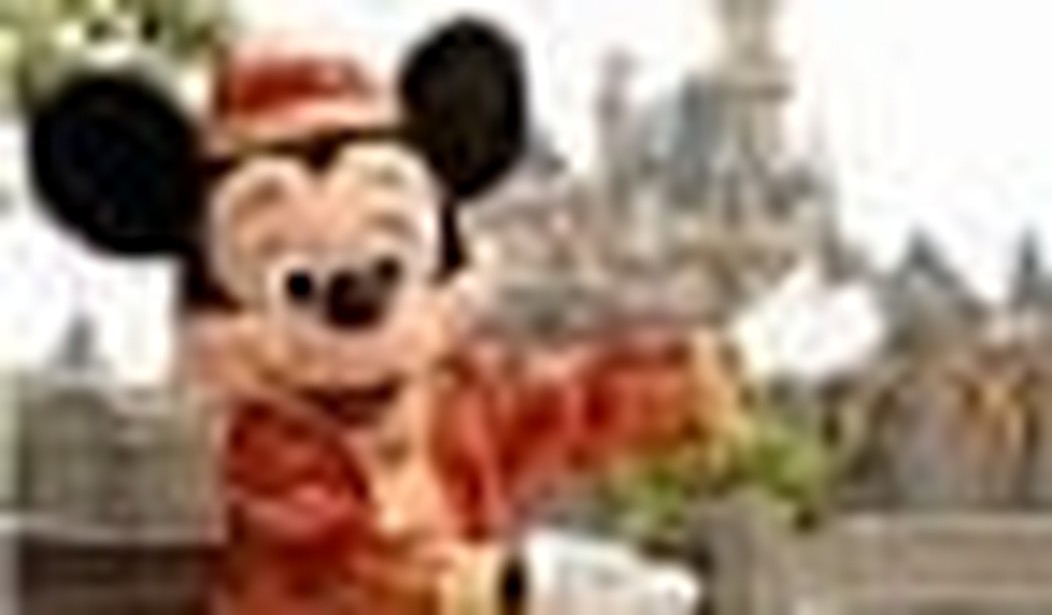Has Mickey gone goofy?
Beijing on Wednesday announced its approval of a Disney theme park in Shanghai. The attraction, in the works for 19 years, is scheduled to open in 2014. The site is slated to be about 1,000 acres with the actual theme park to take up around 100 of them. That would make the much-anticipated attraction a little larger than the original in Anaheim. The cost of the venture is estimated to be $3.5 billion.
So what happens when you combine what is “perhaps the most iconic American brand of all” with potentially the world’s biggest market? Most people would say a sure-fire way to make money. Money will undoubtedly be made — but maybe not by Disney. As Yin Kunhua, a professor at Shanghai University of Finance and Economics, said, “It is difficult to say what the exact impact will be, but this can only be good news for Shanghai.”
Shanghai will surely benefit, boosting revenues from tourism, triggering growth in areas surrounding the park, and enhancing its position in its never-ending competition with Beijing. Disney, however, is another story. On the plus side of the ledger, the park will add to its profile in China and should help its other lines of business, such as the chain of language schools and its now-limited television programming. The park could do well too, with some 300 million potential visitors living within two hours of the site.
How Disney will actually do is an open question, of course. For starters, the theme-park business in China is generally troubled. There are already 2,500 of these attractions in China, with only about 10 percent of them making money. Many have already failed. Froebelland Park in Wujiang, for instance, closed its gates in less than a year. And one attraction shut down before it even welcomed its first visitor. That was Love Land, China’s first sex-themed park, in Chongqing, technically the world’s largest city.
But many will say that Disney doesn’t need to worry because it is, well, an experienced theme-park operator. The Shanghai Magic Kingdom, however, will not be the company’s first in the Middle Kingdom. There’s already one in Hong Kong, and, to put it politely, it’s been a dud. Interestingly, the Shanghai park will also be located in an out-of-the-way area near an international airport, but presumably, the Burbank-based company has learned lessons from its rocky experience in Hong Kong.
Maybe. There is one flaw common to the structures of both the Hong Kong and Shanghai business arrangements. The Hong Kong government is the majority owner of the park there, holding 57 percent with Disney owning the rest (ownership percentages will change in about a year due to a refinancing). In Shanghai, Disney will own only about 40 percent with the remainder held by local enterprises favored by the Chinese central government.
And why is minority ownership a potential problem? The Hong Kong park, open since September 2005, has suffered from being tiny — it is the smallest of the five parks (the others are in Anaheim, Orlando, Tokyo, and Paris). Yet because Disney does not control management — in fact, the Hong Kong government has final say over just about every aspect of the park there — it has had to persuade bureaucrats to expand the facility to attract new visitors.
For instance, to add three new attractions, Disney had to negotiate for almost two years with officials having no business experience. Why did the talks take so long? The local government needed to show that it had squeezed Disney, which is perceived as having out-negotiated the city in prior discussions. The slow pace of the talks allowed Ocean Park, a local attraction featuring dolphins and pandas, to upgrade facilities and siphon off substantial numbers of paying customers.
In Shanghai, Disney will not be in business with any government — at least nominally. Yet it is likely either the central government in Beijing or the Shanghai municipality — perhaps both — will be calling the shots from behind the scenes. And these governments have interests that do not exactly coincide with Disney’s. For instance, Shanghai has a greater interest in developing land around the park than in ensuring the profitability of a foreign company that is not appreciated in all corners of the mainland.
So Disney may have learned less from its experience in Hong Kong than analysts think. Nothing is easy in China — especially when the government makes the decisions.









Join the conversation as a VIP Member